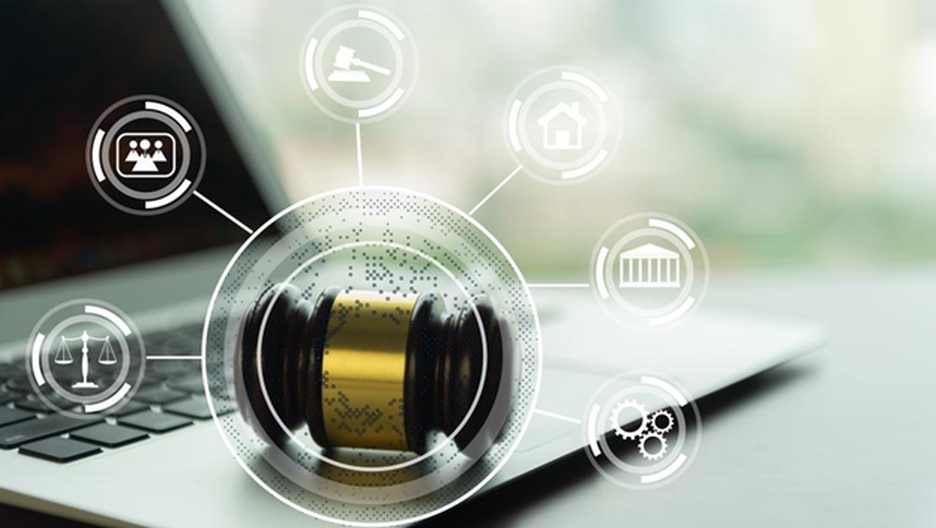How startups are using AI to automate the work of lawyers

For decades, lawyers had immunity from disruptive change; at least from anything outside their competitors. There was no great force rocking the boat. Every market player was happy to reap the rewards of inefficient processes that clients could do little about. That is until technological start-ups turned their scopes toward the legal sector.
The ABA is now processing and approving applications from disruptive AI, blockchain-based, machine learning, and innovative software for lawyers at an unprecedented rate. The majority take on the laborious processes of document preparation and analysis and legal research. Others are looking to directly automate and replace chunks of the profession.
In this post, we discuss what areas of the legal profession are being automated by start-ups.
Contract Review Software
Over the years, we have broken stories on several high-profile start-up investments in the contract space from Juro, to LinkSquares. We brought the stunning results of the LawGeex v Lawyers study and how AI outperformed 20 outstanding lawyers in reviewing NDAs for accuracy. The fact that the LawGeex study showed AI achieved better accuracy in 0.004% of the time it took lawyers should have been a strong predictor of the progression of contract software.
In case the swell of innovation and studies have not been enough proof, JP Morgan has used their COIN software to reduce their annual contract review time by 360,000 hours.
Contract review start-ups and software for lawyers automates work usually handed to newly minted associates which means the disruption is not just experienced in law firms and corporate clients but right across the education spectrum. Entry-level legal jobs are harder to come by so the focus is beginning to shift.
Legal Research Artificial Intelligence
Clients have grown impatient with the industry and the consistent resistance to advancing software. The intensified demands have called for improved research methods and start-ups have been working on it.
Legal research giants like Lexis Nexis and Westlaw made sweeping AI additions to simplify digital libraries and provide case law text alerts. ROSS Intelligence built an AI that understands non-legalese research questions and provides lawyers with case summaries with enough detail to show decisions that were disputed. The grunt work of research has been passed on to AI meaning lawyers are no longer summarizing cases for precedent and are certainly not walking the floors of legal libraries.
The augmentation of legal research is even helping judges. The Chinese Supreme People’s Court has developed an AI tool known as FaXin as a legal case law assistant for judges.
Litigation Avoidance Machine Learning
Workplace harassment increased demands for transparency, the #metoo movement and increased social activism have put increasing pressure on organizations to improve ethical standards and safeguards. While lawyers scramble to tighten up HR policies, they are largely reactionary when it comes to outbound communications. AI and ML have gone ahead in the form of Intraspexion.
Intraspexion pitches itself as an early warning system helping companies to avoid litigation before it happens. It does this by leveraging a deep learning algorithm to scan emails and attachments for any potentially risky, litigation spawning messaging.
Word by word the AI assesses the risk in the context of employment relations, discrimination and hate speech, and other factors. Intraspexion is a forward-thinking tool demanding ethical internal dialogue.
Case Prediction Software
Article 33 of the French Justice Reform Act sent shockwaves through litigation analytics and predictive AI start-ups. The controversial act banned people from revealing patterns in judges’ decisions and courtroom behavior. However, this ban has not been implemented by other countries that are seeing the benefits of predictive machine learning models.
The aim of most predictive AI start-ups like Blue J Legal is to outline case strategies and fast-track settlements based on the likelihood of certain outcomes. Prediction software assesses the variables involved in a case and predicts an outcome thus reducing the number of cases going to trial. In turn, the predictions lessen the billable time required from lawyers overall.
Document Analytics AI
As much as creating and reviewing contracts is the bedrock of transactions, document analytics is just as important for large-scale companies with thousands of open-ended contracts.
Giant corporations sign millions of contracts a year making it difficult to communicate specific deliverables to the boots-on-the-ground workers. With growing importance placed on accountability, solutions were sought.
NLP-powered systems such as Kira Systems, Loio, Seal Software, Lexion, and Paperflip are among the leading legal document management software solving the problems. Analytical software highlights the important clauses and terms that your company has committed to. More advanced features create upsell opportunities by monitoring renewal dates or even prepare for merger and acquisition opportunities.
In Closing
The start-up market for legal technology remains exceedingly healthy thanks to the previous resistance to change. Automation opportunities have focused on repetitive, outdated, and slow-moving tasks such as contract preparation and research, but the tide is shifting.
As the archaic processes are automated, new opportunities and innovations will come. We have already seen the outer remit of predictive AI possibilities. Machine learning and automation will continue to find areas of lawyer work that can be replaced eventually whittling the profession down.
Lawyers will always be required for understanding client needs and delivering persuasive arguments but creative start-ups are seizing a long-awaited opportunity to fix the legal industry.

